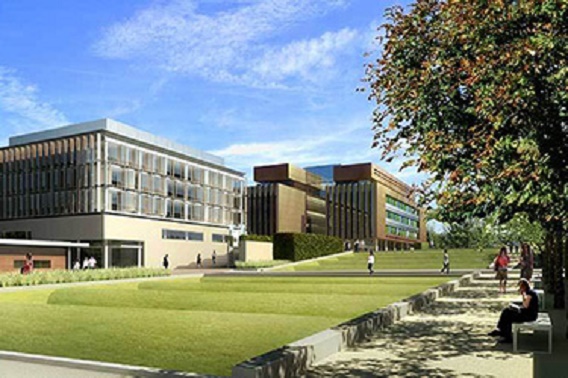University of Southampton: Probing a time warp – Beyond Notability brushes the dust from women’s contributions to archaeology, history and heritage
The University of Southampton’s expertise in digital humanities is set to bring to life the many untold stories about women’s achievements and discoveries in archaeology, history and heritage in the UK. The School of Humanities will help academic partners, including the Society of Antiquaries of London, to create an open access repository that will reveal the extent of women’s contributions to these fields.
Women’s work had been recorded in the Society’s archives since the 18th century, and by the late 19th century, they were able to study archaeology and history at university and join local archaeological and historical societies in Britain. But what did that mean in human terms? What did they contribute? And how was that represented in the archives? How can women’s work be revealed in ways that ensure discoverability, accessibility, inclusivity, and encourage the creation of truly compelling, challenging and richly detailed stories about their contributions?
These are some of the questions Beyond Notability, a three-year £929,729 research project funded by the Arts and Humanities Research Council, will be tackling. Led by the Institute of Classical Studies (ICS) at the University of London’s School of Advanced Study, in partnership with the Society of Antiquaries of London and University of Southampton Digital Humanities, it will bring together academic researchers with expertise in intellectual and social history, information science and digital humanities to explore the history of women in archaeology, history and heritage in Britain.
‘We aim to write new chapters in the history of archaeology and heritage work in Britain by unlocking the treasures of archives, and also demonstrate the potential of digital methods to enrich history’ says Professor Katherine Harloe, director of the Institute of Classical Studies and the project’s principal investigator
Using the Society of Antiquaries of London archives and those of the Royal Archaeological Institute, Beyond Notability will create an unprecedented openly accessible research data set of women active in archaeology, history and heritage in the late 19th and early 20th centuries. Creating a bespoke language to represent the diversity of activities conducted by these women, it will tell their stories and map them using linked open data, ensuring the information is discoverable and accessible through Wikipedia.
Beyond Notability will also set the lives that emerge from the archive into a wider context. Only two years before Strong and Graham were nominated, a portion of British women had at last secured the right to vote.
‘We will examine women’s educational pathways into archaeology, history and heritage, how these women engaged with suffrage, how war and empire shaped their personal and professional lives, and how they developed formal or informal careers in the field,’ explains Dr Amara Thornton, ICS research fellow and project co-investigator.
‘Through this contextual work, we will scale up our research database by making links to relevant archives and sources beyond the Society of Antiquaries, adding further detail to their stories with these related collections.’
In writing inclusivity, discoverability, and accessibility into the framework of this project, the Beyond Notability team will produce a range of outputs targeted at academic and independent researchers, digital content producers, cultural heritage professionals and visitors to museums and heritage sites. And to encourage interaction and build user feedback into the development of the data set, they will release curated information as the project evolves.
As Dr James Baker, director of Digital Humanities at the University of Southampton and project co-investigator, says ‘building and iterating a data set in public from day one, rather than – say – publishing a finished data set towards the end of project, is central to our intellectual agenda: to show and document our labour, to position ourselves within the histories we are investigating, and to enable community scrutiny of and interaction with the data and infrastructures we produce.’
‘We’re all familiar with the idea that “you can’t be what you can’t see” – representation matters in intellectual and public life,’ adds Professor Harloe. ‘The same is true of history – though there’s a long history of women interacting with cultural and heritage material, their work and contributions have all too often rested in obscurity. Our project will bring new stories to light and explore the social and cultural factors that have kept these women hidden for so long.’

